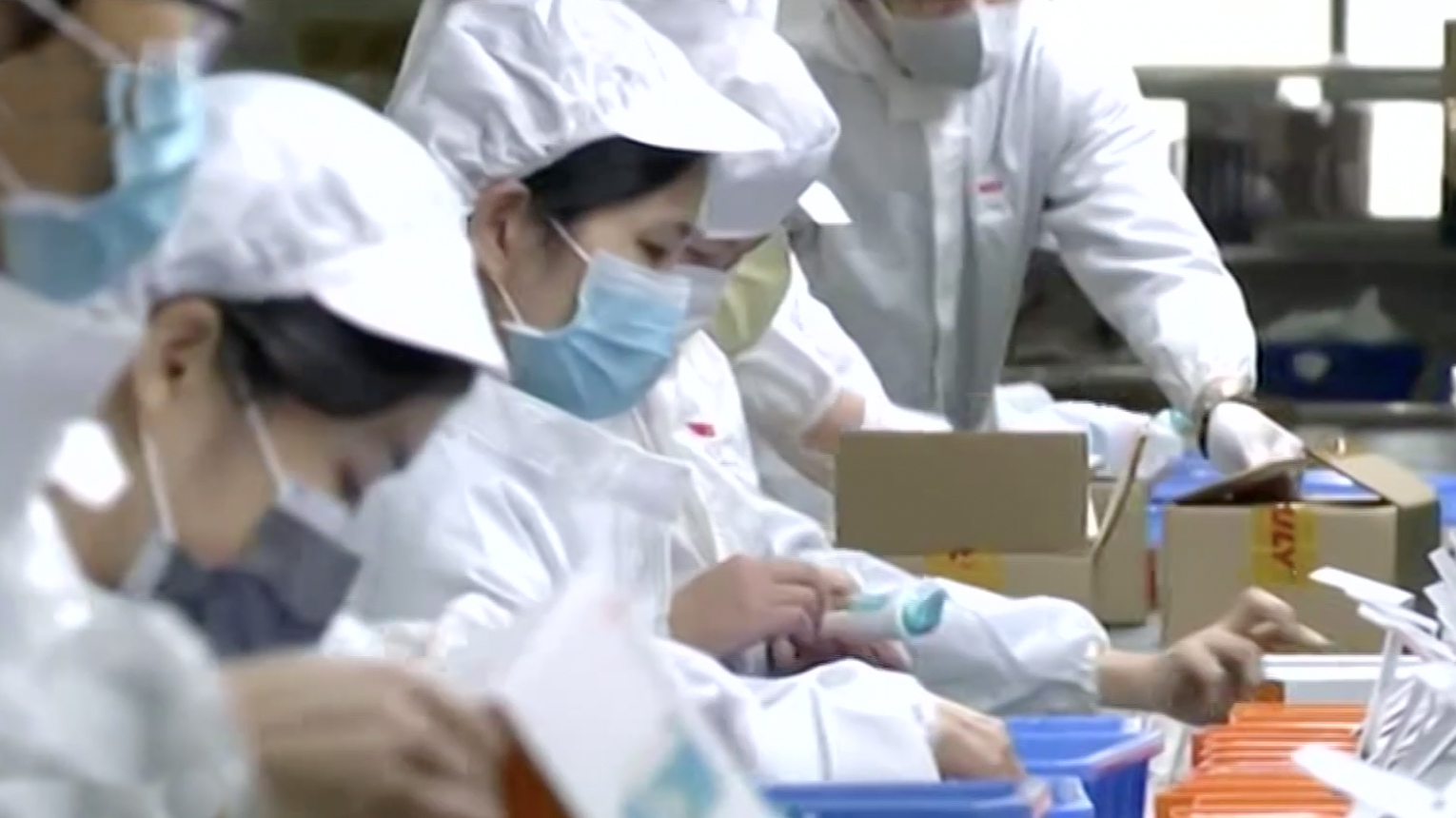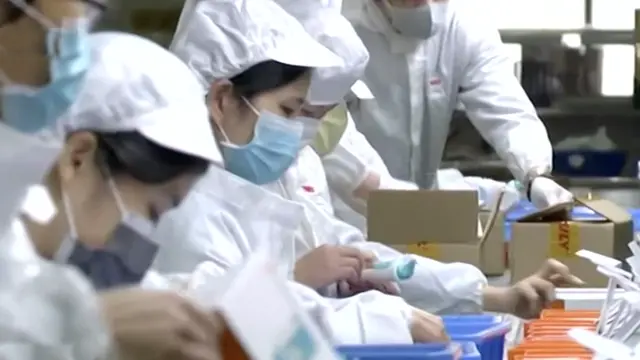02:07

Several foreign businesses operating in China are predicting a slump in revenues in the first quarter of 2020 on the back of the COVID-19 outbreak, and are seeking further government support measures to cushion the impact.
Justin Downes, who operates Beijing-based Axis Leisure Management, a service provider to the winter sports industry since 2009, said that the company's flagship event, FIS Alpine Ski World Cup, scheduled for this month in Beijing's Yanqing, was cancelled due to the epidemic. Other activities also took a pause.
"My attitude is to stay positive. We will not run away. In fact, I believe that the industry will come back bigger and stronger," said Downes.
However, Downes predicts a 70-percent reduction in the company's first quarter revenue. All of his staff have yet to return to office, with some still stranded outside Beijing due to the quarantine measures.
Downes is not alone – some of his partners in Beijing have suffered even bigger losses. However, he acknowledged the Chinese government's efforts to contain the damage. "Whether it be through reduction of interest to the banks or lowering social benefits for the period of time, encouraging landlords to reduce rent, these things would be almost impossible to initiate in any other countries."
But Downes said more can be done.
"Access to credit in China for foreign companies is not easy. So this would be one area where it would benefit from support. Ability to move money more easily between offshore and China, even between Hong Kong and the mainland, would benefit our ability to assist with our own cash flows, as we deal with our international side of the business and domestic side."

Justin Downes of Beijing-based Axis Leisure Management calculates a 70 percent reduction in revenue due to outbreak. /CGTN
PBOC expected to cut rates
Earlier this week, China's central bank cut the interest rate on its medium-term lending facility, the latest of a host of policy measures to mitigate the impact the coronavirus outbreak is having on businesses.
Analysts expect the People's Bank of China to reduce the country's benchmark loan prime rate on Thursday that will lower borrowing costs and ease financial pressures on companies.
As of the end of last year, the total number of foreign invested enterprises in China exceeded one million for the first time. As an integral part of China's economy, they are also bearing the brunt of the coronavirus outbreak.
Clare Pearson, the former chair of the British Chamber of Commerce in China, told CGTN that there's certainly a short-term impact on the economy.
"But long-term, the outbreak of the coronavirus doesn't change the fundamentals of what is a very strong economy of 1.4 billion people. So change for China but not necessarily adverse change," said Pearson.
05:25

AustCham: 20 percent revenue drop
Meanwhile, Nick Coyle, the CEO and executive director of China-Australia Chamber of Commerce said its members are reporting short-term challenges, especially smaller enterprises.
"What we've seen in general is quite a significant impact on smaller businesses, we're seeing the majority of smaller companies predicting their 2020 revenue to be down by around 20 percent," he told CGTN.
Coyle said the smaller companies are coping with measures such as cost cutting, downsizing of staff and deferment of payables. There are also some companies looking to shift to other markets in the region.
"Vietnam seems to be a popular destination, and other countries nearby China," he said.
Coyle said that the business community would welcome anything the government can do to ease the cost of businesses in the short term.
"Having access to liquidity is challenging enough. Anything the government can do to extend measures to small businesses is going to be helpful. We want to make sure whatever measures are communicated smoothly, so we don't have a lag time between policy announcement and implementation, that's going to be really really important," he said.
(CGTN's Cheng Lei also contributed to this story)
 简体中文
简体中文

